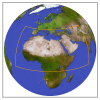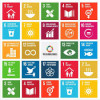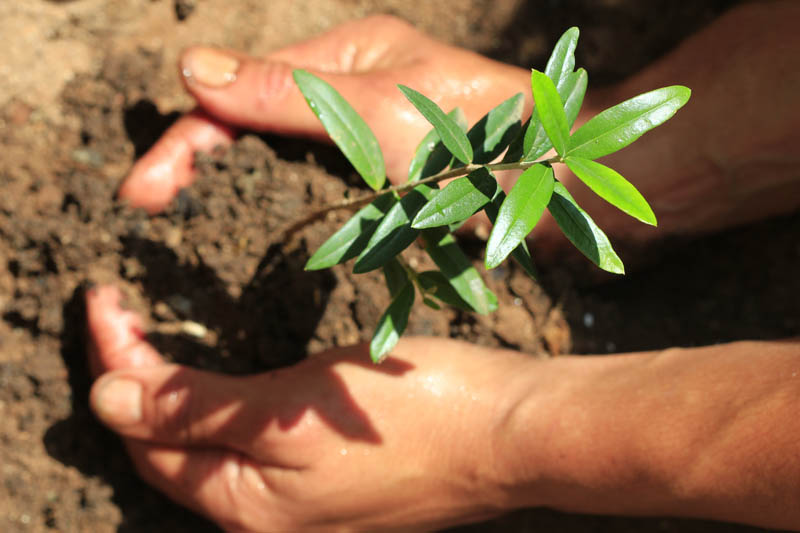2030 SDP agenda and Climate Change Summit, key issues for Med-O-Med area
The year 2015 has been crucial concerning Med-O-Med action lines “Cultural Heritage” and “Sustainable development”. Indeed, two agreements have been adopted that affect Med-O-Med area and set the lines in which international and public agencies would finance development initiatives to 2030. The first one is the post-2015 Agenda for Development and the adoption of the Sustainable Development Goals by 193 UN countries members. The second is the 21st Conference (COP21) on climate action, where for the first time 195 countries signed the first universal, legally binding deal to cut carbon emissions. Since the impact of climate change threats poverty alleviation and affects economic growth, Climate change is a key development issue.
Our Med-O-Med action area includes South and East Europe, North Africa and Middle East constituting a microcosm of the development issues at global level. Med-O-Med area reflects all the challenges identified in the Sustainable development goals framework, such as natural and cultural heritage disaggregated in biodiversity, climate change mitigation and adaptation, environmental resources management, food sovereignty, social equality, and peace building.
Within the activity carried out in Med-O-Med network during 2015, we can highline that key organizations related to sustainable development have joint us such as MEMOLA Mediterranean project, Koranic Botanic Garden in Doha (Qatar), Habiba Community in Sinai (Egypt), and The Palmeral in Elche (Spain). In addition, veteran Med-O-Med members as Jordan Royal Botanic Garden and the International Union for Conservation of Nature have shared with us their progress in terms of sustainable development. Med-O-Med organizations reflect the Mediterranean diversity, and are a reference of how taking advantage of natural resources for launching sustainable development iniciatives in MENA area. In this direction, it will be important to identify and take advantage of the development policies and programmes that will be carried out during this new phase.
Development goals SDG, includes cultural diversity
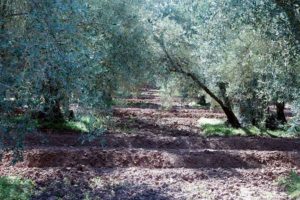 On 25 September 2015, 17 new global goals for the next 15 years (2016-30) at the UN Sustainable Development Summit in New York. “Transforming our World: The 2030 Agenda for Sustainable Development”. These Goals are the second phase that follows the Millennium Development Goals (MDGs) which defined the lines for financing development initiatives. In the MDGs phase, Culture was not only unidentified as financing item to take into account for achieving sustainable development, but neither considered within the evaluation framework. However, international community has demanded the inclusion of Culture issue during the analysis process for adopting the Sustainable Development Goals (SDG) with the global campaign “The Future We Want includes Culture” signed by 900 organisations and more than 2 500 individuals from 120 countries. This initiative released a joint communique culture’s role in sustainable development identifying six steps to take in the future.
On 25 September 2015, 17 new global goals for the next 15 years (2016-30) at the UN Sustainable Development Summit in New York. “Transforming our World: The 2030 Agenda for Sustainable Development”. These Goals are the second phase that follows the Millennium Development Goals (MDGs) which defined the lines for financing development initiatives. In the MDGs phase, Culture was not only unidentified as financing item to take into account for achieving sustainable development, but neither considered within the evaluation framework. However, international community has demanded the inclusion of Culture issue during the analysis process for adopting the Sustainable Development Goals (SDG) with the global campaign “The Future We Want includes Culture” signed by 900 organisations and more than 2 500 individuals from 120 countries. This initiative released a joint communique culture’s role in sustainable development identifying six steps to take in the future.
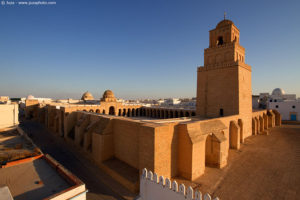 Culture, closely linked to identity, contributes to inclusive and equitable development. The 2030 Agenda for Sustainable Development has advanced in many fields related to heritage. Particularly, it is the first time that this agenda refers to culture within the framework of SDG related to education, the environment, economic growth, sustainable consumption and production patterns, peaceful and inclusive societies. In addition to culture, other issues of interest related to Med-O-Med action lines are integrated among the 17 SDG and 169 targets. Indeed, SDG15 is dedicated to the natural heritage preservation stressing ecosystems, biodiversity, forests and land.
Culture, closely linked to identity, contributes to inclusive and equitable development. The 2030 Agenda for Sustainable Development has advanced in many fields related to heritage. Particularly, it is the first time that this agenda refers to culture within the framework of SDG related to education, the environment, economic growth, sustainable consumption and production patterns, peaceful and inclusive societies. In addition to culture, other issues of interest related to Med-O-Med action lines are integrated among the 17 SDG and 169 targets. Indeed, SDG15 is dedicated to the natural heritage preservation stressing ecosystems, biodiversity, forests and land.
Concerning cultural heritage, a crucial leap has been taken in the awareness of the value of culture as driver and enabler of sustainable development. Within the SDG framework, this recognition will promote the engagement between future development programs and the local cultures in which they operate, enabling public and international institutions to allocate far greater resources to cultural policies and programmes for the next 15 years. This progress has been possible with the involvement of international community which has desmostrated the importance of international networks and campaigns to make things happen.
In this sense, the operationalization of UNESCO’s Culture Conventions on the safeguarding and promotion of cultural and natural heritage, cultural and creative industries, and joint programmes with other UN Agencies and strong cooperation with the national authorities will be key for the implementation of the 2030 Agenda for Sustainable Development. Within Med-O-Med area, it will be a great opportunity for launching Med-O-Med Cultural Landscape Convention of the Mediterranean and the Middle East. This initiative aimed at making up for the shortage of funds available for conserving biodiversity and natural and cultural heritage preserving the features and values of the Mediterranean and the Middle East relevant cultural landscapes through legislation, planning and management.
Paris agreement and Med-O-Med region
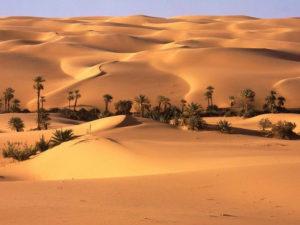 Climate change has to be considered integrated with all economic and sectorial policies as energy, food, and water in order to drive local, national and regional economies into a sustainable development road. Therefore, an international and concerted approach is required to mitigate global warming and achieve sustainable goals.
Climate change has to be considered integrated with all economic and sectorial policies as energy, food, and water in order to drive local, national and regional economies into a sustainable development road. Therefore, an international and concerted approach is required to mitigate global warming and achieve sustainable goals.
Paris Climate Change agreement signed on 12 of December 2015 has recognized that “climate change represents an urgent and potentially irreversible threat to human societies and the planet and thus requires the widest possible cooperation by all countries” (IPCC, 2015, 1). According to this agreement, developed and developing countries are required to limit their greenhouse gas (GHG) emissions to relatively safe levels, of 2 degrees Celsius, with an aspiration of 1.5. In addition, the agreement sets financial assistance to developing countries in order to help them curb carbon emissions and cope with the adverse effects of global warming.
Although the agreement is a historic compromise that may level out and eventually decline rise in planet-warming carbon emissions that started during the Industrial Revolution, it will not solve global warming. According to scientists, if these commitments are met, global greenhouse gas emissions will be cut by about half enough as it is necessary to stave off an increase in atmospheric temperatures of 2 degrees Celsius. Although fossil fuels extraction (oil, coal and gas) is responsible for 60 percent of global greenhouse gas emissions and even scientifics affirm that if 80 percent of known reserves of fossil fuels are not left under the ground it is impossible to limit the temperature increase to below 2 degrees Celsius., Paris agreement did not set any limit to current fossil fuels extraction.
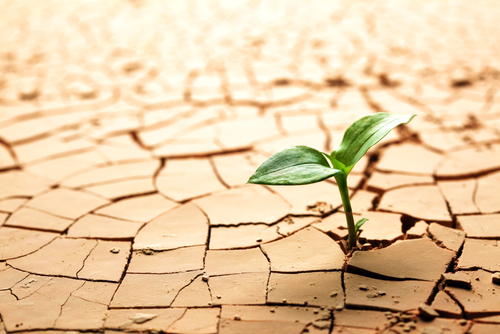 2 degrees Celsius is the point at which, scientific studies have concluded, the world will be locked into a future of devastating consequences, including rising sea levels, severe droughts and flooding, widespread food and water shortages and more destructive storms. Concerning Med-O-Med area, the Middle East and North Africa (MENA), one of the most vulnerable region to climate change, this issue is of crucial importance. In a world where global average warming reaches 4°C above pre-industrial level, summer temperatures are expected to be up to 8°C warmer in some Med-O-Med countries by the end of the century.
2 degrees Celsius is the point at which, scientific studies have concluded, the world will be locked into a future of devastating consequences, including rising sea levels, severe droughts and flooding, widespread food and water shortages and more destructive storms. Concerning Med-O-Med area, the Middle East and North Africa (MENA), one of the most vulnerable region to climate change, this issue is of crucial importance. In a world where global average warming reaches 4°C above pre-industrial level, summer temperatures are expected to be up to 8°C warmer in some Med-O-Med countries by the end of the century.
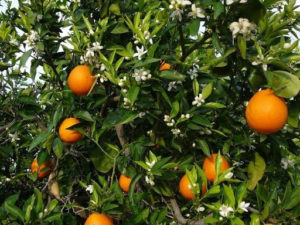 Increasing temperatures caused by climate change pose big challenges to Med-O-Med region. Although The Paris conference aspires to limit global warming to 1.5 degrees Celsius over pre-industrial times, rising temperatures could reach unbearable levels in North Africa and the Middle East (MENA) affecting every socioeconomic activity, including farming and tourism. According to the World Bank, 43 port cities in MENA, including 24 in the Middle East and 19 in North Africa, are at risk. A spike of 2 degrees Celsius in the Earth’s temperature would flood land affecting 280 million people in different Med-O-Med countries as Tunisia, Libya, Egypt and Qatar. Major Arab cities like Alexandria, Benghazi and Algiers may be affected. In the Nile delta, a sea level rise of half a metre could displace more than 2 million people flood may cause devastating damage.
Increasing temperatures caused by climate change pose big challenges to Med-O-Med region. Although The Paris conference aspires to limit global warming to 1.5 degrees Celsius over pre-industrial times, rising temperatures could reach unbearable levels in North Africa and the Middle East (MENA) affecting every socioeconomic activity, including farming and tourism. According to the World Bank, 43 port cities in MENA, including 24 in the Middle East and 19 in North Africa, are at risk. A spike of 2 degrees Celsius in the Earth’s temperature would flood land affecting 280 million people in different Med-O-Med countries as Tunisia, Libya, Egypt and Qatar. Major Arab cities like Alexandria, Benghazi and Algiers may be affected. In the Nile delta, a sea level rise of half a metre could displace more than 2 million people flood may cause devastating damage.
On the other side, scarcity of water is one of the foremost problems in the MENA region, as rainfall could decline 15-20% by 2040. According to the United Nations’ panel on climate change projections, an additional 80 million-100 million people could be exposed to “water stress” within two decades. The World Resource Institute lists 14 MENA countries, including the Gulf Cooperation Council (GCC) nations as well as Lebanon, the Palestinian territories, Israel and Iran, among the world’s most endangered in terms of water scarcity. Water scarcity already has been pushing MENA nations to tap into aquifer resources beyond replenishment rates and at the expense of the needs of future generations.
Due to all these accumulated factors, Med-O-Med region faces many vulnerabilities that require an international and concerted answer. Climate change together with population growth and increasing socio-economic pressure will place already scarce water resources under intense pressure and the region’s ecological weaknesses will worsen if mitigation measures are not adopted on time.
However, there are some opportunities in Med-O-Med area such as abundant resources for renewable energy. Alternative energy resources can help curtail carbon emissions and improve living conditions. Good governance should include sound water and energy planning as well as reforms to ensure a more efficient use of natural resources. Due to its geographical position, the Mediterranean offers great potential for development of low carbon solutions at low cost, thanks to its vast renewable energy potential.
Preventing encroachment of the Sahara desert onto arable land is one of the big challenges that is facing Maghreb area. Concerning Middle East, cradle of civilizations where the world’s first cities and farming communities arose more than 2,000 years ago, according to Bank report given “the high dependence of Arab countries on imported food” the expected fall in global food production would have a severe impact on the region. In order to resolve this threat food sovereignty has to be a priority in this area.
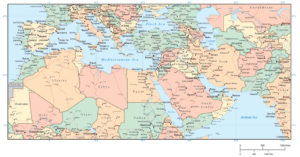 Concerning initiatives carried out at regional level, the Middle East and North Africa region representatives adopted fourteen recommendations in order to improve the regional response to climate change on 29 of May of 2015 in a meeting held in Geneva, Switzerland organized by the Permanent Mission of Lebanon to the United Nations with support from the United Nations Development Programme (UNDP). Among these 14 recommendations we can stress the importance of the transfer of North-South technical know-how and knowledge through joint research on climate change” and the promotion of greater regional cooperation and collaboration to harness existing knowledge South-South, in particular through the development and promotion of scientific networks within MENA region.
Concerning initiatives carried out at regional level, the Middle East and North Africa region representatives adopted fourteen recommendations in order to improve the regional response to climate change on 29 of May of 2015 in a meeting held in Geneva, Switzerland organized by the Permanent Mission of Lebanon to the United Nations with support from the United Nations Development Programme (UNDP). Among these 14 recommendations we can stress the importance of the transfer of North-South technical know-how and knowledge through joint research on climate change” and the promotion of greater regional cooperation and collaboration to harness existing knowledge South-South, in particular through the development and promotion of scientific networks within MENA region.
Paris Climate Change Agreement has been a little step and a lost opportunity to take the required measures to solve the big threat ahead that will affect specially Med-O-Med area. Nevertheless, international initiatives, such as the inclusion of Culture in SDG Agenda, has shown that only with global actions effective measures will be adopted in order to avoid the devastating consequences of climate change. In this direction, FUNCI aspires to stress the importance of regional networks as Med-O-Med. Therefore, we encourage Med-O-Med members to continue to participate actively sharing their sustainable activities. This exchange is a first step for greater cooperation that will lead us to launch common actions and campaigns contributing to mitigate climate change and promote sustainable development at regional and global level taking advantage of international programmes.
Myriam de la Cavada – FUNCI
This post is available in: English Español




